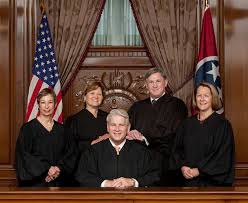
Nov 17, 2021 | Business Law
To combat drunk driving and the increased use of painkillers and other drugs while driving over the New Year’s Day holiday, the Tennessee Highway Patrol and local law enforcement will be stepping up DUI and Drugged driving law enforcement on area roads. The “No Refusal” enforcement will be in effect today through New Year’s day.
The most significant difference this year is that motorists who are impaired will not be able to refuse a blood test if an officer has probable cause to believe that the driver is impaired. Previously a motorist could refuse a blood or breath test. Under a law that went into effect earlier this year, a police officer who has probable cause may obtain a search warrant to secure the blood of a suspected impaired driver.
As the TN Department of Safety states, the “No Refusal” law, enacted this year by the General Assembly, allows law enforcement officials to seek search warrants for blood samples in cases involving suspected impaired drivers. Previously, a suspected impaired driver could refuse a blood alcohol content test and face charges of violating the implied consent law. This new law enables law enforcement to legally obtain blood samples by working with prosecutors and judges throughout the state during the warrant acquisition process.
This process will be in effect throughout Hamilton County. This link provides a list of where Tennessee Highway Patrol will be conducting DUI checkpoints today through New Year’s Day.
The legislation was passed in part because of the persistent danger of drunk driving and also because of the dramatically increased rates that impaired people driving are impaired by painkillers and other drugs. These drugs do not show up in a standard breath test but can be detected though blood analysis. A forced blood draw supported by probable cause is a significant step to combat the problem.

Nov 16, 2021 | Fair Sentencing Act, Sixth Circuit
The Sixth Circuit recently issued yet another opinion regarding the impact of the Fair Sentencing Act. This latest case,U.S. v. Bell, involved a guilty plea by Gregory Bell to crack cocaine and gun possession charges. In the case, Bell faced a mandatory minimum of 120 months behind bars on the crack charge plus an additional 60 months on a separate gun charge. Bell was ultimately sentenced to 180 months in prison.
After the Fair Sentencing Act was passed in 2010, Bell moved to have his sentence modified. The district court decided that Bell was ineligible for a modification, saying that the Supreme Court’s decision in Dorsey v. U.S. made clear that the FSA only applied to those offenders who were sentenced after the FSA went into effect.
Sadly for Mr. Bell, were the Fair Sentencing Act retroactive, as some Sixth Circuit cases indicated it might be, then his sentencing range would now be between 63 and 78 months. Under another line of cases, chiefly U.S. v. Hammond, the Fair Sentencing Act’s reduction of mandatory minimums in crack cocaine cases was found not to apply retroactively to defendants who were sentenced prior to the law’s passage. The question before the Sixth Circuit was which line of cases would prevail.
The Sixth Circuit admitted that Bell’s sentence would be eligible for a modification under the holding found in U.S. v. Blewett, a case decided earlier this year by the Sixth Circuit. In that case, the Court said that new lower mandatory minimum sentences for crack offenses are applicable to those cases where defendants seek retroactive relief for what they claim were racially discriminatory original sentences. The Court held that perpetuating these discriminatory mandatory minimums would violate the Equal Protection Clause and, as such, decided to set aside the old sentencing laws in favor of the new ones. However, the opinion noted that the Blewett decision had recently been vacated by the Court’s decision to hear the case this fall en banc.
Given that Blewett has been overturned while the court awaits a full hearing, Hammond ruled the day with regards to the Bell case. In Hammond, the Sixth Circuit denied a defendant’s attempt to have his crack cocaine sentence modified downward. Because of the ruling in Hammond, Bell’s request for a modification was also rejected. Defendants across Tennessee and the rest of the Sixth Circuit eagerly await a final ruling in Blewett, an important case that will hopefully bring clarity to the confusing issue of FSA applicability.
To read the full opinion, click here.
See Our Related Blog Posts:
U.S. Sentencing Commission Crack Cocaine Retroactivity Data
Sixth Circuit Allows Crack Cocaine Defendants To Be Resentenced In Light Of Fair Sentencing Act

Nov 15, 2021 | Drunk Driving
With New Year’s Eve upon us and a plethora of parties soon to begin, a reminder to parents that they are liable in Tennessee for underage drinking–drinking by their children and underage guests that happens in the home. As a lawyer and a parent of two high school age young adults, I am always a little surprised when I hear parents say that they did not realize they are responsible for underage drinking at their homes.
Many parents think that they can provide a safe haven for young adults to experience alcohol responsibly. As one parent told me, “I don’t want my son driving after drinking a beer. And, it’s not like they are getting drunk.” That parents have turned a blind eye to the potential consequences concerning what could happen where beer and liquor are consumed is a problem. With every holiday season we have parties and arrests for drinking under age. When tragedy strikes in the form of an alcohol-related accident or fatality, parents need to know that they might bear significant responsibility. In Tennessee there are two kinds of potential consequences: criminal and civil. Criminally, parents can be held liable for the crime of contributing the delinquency of a minor where alcohol is served to minors with their consent or tacit approval (Class A misdemeanor). Perhaps less well known are the civil consequences. In a civil context, when you open your home up to the teenage beer-blast, you have exposed yourself to monetary damages for any foreseeable consequences that might follow. A parent is a social host, and he/she owes guests a duty of reasonable care under the circumstances. If the harm that follows (arrest, DUI, injury or fatality) is reasonably foreseeable, then the parent is liable.
Today’s Wall Street Journal reports about the reality of parents being held liable for underage drinking:
Eight states have specific “social host” laws that say parents can get in trouble if underage guests are drinking, even if no one gets hurt, according to the National Institutes of Health. (Some of those states allow parents to serve alcohol to their own children in some situations.)Sixteen other states have laws that hold Mom and Dad legally responsible for underage drinking under certain circumstances — for example, if a teen who drank at their home got into a car accident, NIH said. In other states, parents can get in trouble under more general liability laws.
Stephen Wallace, a senior adviser at Students Against Destructive Decisions, or SADD, which used to be called Students Against Drunk Driving, said that with an increased awareness of the dangers of underage drinking, law enforcement authorities are increasingly relying on social host liability laws to go after parents.
While he acknowledged that teens are adept at finding ways to drink on the sly, he said he is all for anything that gets at the problem of underage drinking. He said he finds it troubling that the Burnetts said they saw no alcohol consumed at their party.
“Parents need to say to kids, ‘You shouldn’t be drinking at all and you certainly can’t do it here because we can be put in jail,'” Wallace said.
In Tennessee, laws are on the books that hold parents responsible for teen parties and drinking in their midst. Criminal and civil penalties may follow parents who willfully ignore the obvious: you are in charge.

Nov 13, 2021 | Federal Cases new
Earlier this year the Supreme Court decided US v. Alvarez, a case that tests the limits upon which a community must accept contemptible conduct–in this case speech–from locally elected officials.
Xavier Alvarez is a brazen liar. But is he a criminal? As an elected official for the Three Valley Water District Board with headquarters in Claremont, California, he introduced himself at a meeting. Alvarez claimed he served 25 years in the Marine Corps and that he was wounded in combat–this is false. He boasted that he played professional hockey for the Detroit Red Wings and that he once had been married to a Mexican film starlet–these claims are equally untrue. But the whopper that got him indicted in federal court was the statement that he received the Congressional Medal of Honor. By making that statement he violated the Stolen Valor Act by falsely claiming to have received the honor. By all accounts Alvarez was making a pathetic attempt to draw attention to himself to those assembled at the municipal meeting.
The Stolen Valor Act states that whoever falsely represents himself, verbally or in writing, to have been awarded any decoration or medal authorized by Congress for the Armed Forces of the United States … shall be fined under this title, imprisoned not more than six months, or both.
Faced with the obvious, his own statements, Alvarez pled guilty in federal court but he reserved the right to appeal his conviction. The appeal eventually found its way to the Supreme Court.
The question before the court was whether the Stolen Valor Act violated the Free Speech Clause of the First Amendment? One circuit court had already found the act constitutional and another found it to be unconstitutional. The Supreme Court accepted the case to address the split authority on this issue.
In June of this year, the Supreme Court found the Stolen Valor Act unconstitutional. Justice Kennedy writing for the majority in a 6-3 decision stated that content based restrictions like the Stolen Valor Act are subject to strict scrutiny to see if the law violates the First Amendment. To be sure, some false statements–false statements of defamation or false statements to federal law enforcement agents are crimes. True threats that present a grave and imminent danger are also crimes. But false statements alone do not present the type of threat that warrants intrusion into the first amendment. False statements of the kind made by Alvarez create no harm–so the court found. Obnoxious behavior and reprehensible conduct, yes, but not a crime. The remedy to false statements is true statements and the Court noted that Alvarez had been roundly criticized and rebuked once his claims we found to be untrue.
In the words of Justice Kennedy: “The Nation well knows that one of the costs of the First Amendment is that it protects the speech we detest as well as the speech we embrace. Though few might find respondent’s statements anything but contemptible, his right to make those statements is protected by the Constitution’s guarantee of freedom of speech and expression. The Stolen Valor Act infringes upon speech protected by the First Amendment.”
Here is the full opinion: U.S. v. Alvarez, 132 S.Ct. 2537 (U.S.,2012)

Nov 12, 2021 | Tennessee Supreme Court, TN Supreme Court
Criminal Contempt in Tennessee
The Tennessee Supreme Court decided in the Tracy Rose Baker v. Tennessee case, that criminal contempt does not equal a criminal conviction under Tennessee’s laws and, as a result, does not allow for post-conviction relief. A person held in criminal contempt cannot seek post-conviction relief from a judgment in a civil case.
The case, Tracy Rose Baker v. Tennessee, concerns a woman who was involved in an especially nasty and lengthy divorce. Tracy Rose Baker and her former husband, Jeffrey Baker, traded contempt petitions against one another for months following the issuance of their divorce decree. In one hearing, Tracy signed an order where she admitted to eighteen acts of criminal contempt, including violations of orders of protection and temporary restraining orders. Baker pled guilty to the charges and agreed to serve 10 days for each count, for a total of 180 days to be served on probation.
Later, her former husband filed a petition seeking to revoke her probation, saying that Tracy had violated the terms of her probation. The trial court ultimately agreed and ordered Tracy to serve out the remainder of her 180-day sentence in the Sumner County jail.
Tracy eventually filed a petition for post-conviction relief, challenging her criminal contempt conviction. She claimed that the guilty pleas on all 18 counts should be set aside because of bias on the part of the trial judge and because no hearing was ever conducted to determine whether her admissions were knowing and voluntary. The trial court dismissed Tracy’s petition, saying that she had failed to state a claim under the Post-Conviction Procedure Act. The Court of Criminal Appeals similarly affirmed the dismissal and the case made its way before the Supreme Court.
The Court was tasked with deciding whether Tracy was entitled to seek post-conviction relief given the nature of her charges. The Court discussed the passage of Tennessee’s Post-Conviction Procedure Act and how the Act was designed to provide an avenue for litigating constitutional errors in Tennessee criminal cases. The original Act was intended to apply “to any person convicted of a crime.” The current version specifies that the Act entitles those who are “in custody under a sentence of a court of this state” the chance to file one petition for post-conviction relief.
In criminal contempt cases, sanctions are meant to punish past behavior. In these cases, the person held in contempt cannot shorten their sentence by simply complying with a court order. It is because of this that criminal contempt is often seen as a crime.
Despite this, the Court made clear that those convicted of criminal contempt (known as contemnors) are not entitled to the rights afforded to other criminal defendants. For instance, they are not entitled to a jury trial in many cases and also do not require an indictment and prosecution by the state. The Court further noted that Tennessee Code never defines contempt as a criminal offense.
The Court concluded that post-conviction relief is a remedy that is only available to those seeking relief from convictions of purely criminal offenses. It is not available to those challenging findings of criminal contempt that arose from civil cases. The Supreme Court affirmed the ruling of the Court of Criminal appeals.
To read the full opinion, click here.
See Our Related Blog Posts:
Supreme Court Upholds Trial Court’s Dismissal of DUI Charges After Video of Arrest Lost





